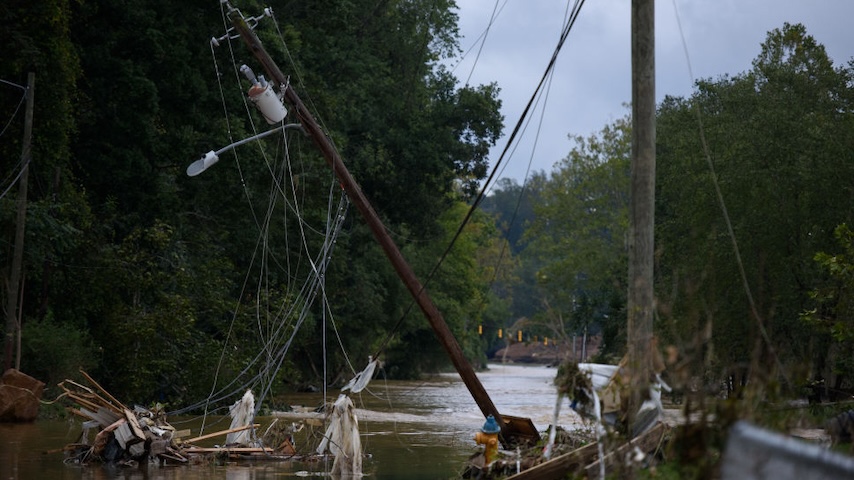Climate Change Broke the Brain-Breaking Climate Change Chart
Photo by Melissa Sue Gerrits/Getty Images
The chart is wrong.
Back in March, I wrote about the climate change chart that was slowly driving me insane, the decades-long record of global average sea surface temperatures (minus the poles) where 2023 and 2024 had seemed to slip the surly bonds of history and normalcy and send our planet’s waters into literally uncharted territory. Then, I said the chart “looked” wrong. Now it is.
Or, not so much wrong as incomplete. In general, the chart, which is maintained by the University of Maine’s Climate Change Institute based on data from the National Oceanic and Atmospheric Administration, updates with a delay of only a day or two, showing that boiling hot sea surface temperature as it was only a few hours prior. But now, with 2024’s temperature line having just poked back up above 2023 after a two-month hiatus below (and still well above every other year on record), an anomaly: our last available day is September 26.
The data behind the chart, and much, much more critically important climate information, is maintained by NOAA’s National Centers for Environmental Information. NCEI is headquartered in Asheville, North Carolina. As a note above the chart says, the “data on this page have not updated since September 26 due to severe impacts to the National Centers for Environmental Information (NCEI) from Hurricane Helene.”
The climate catastrophes have come for the climate data.
To be clear, this will likely be fine. NCEI has confirmed first that all of its people are accounted for and safe, and also that all the data it houses is not at risk thanks to redundancies and other safeguards. But because of the severe impacts to local infrastructure in and around Asheville, including to the NCEI facilities’ broadband capabilities, “there is no definitive timeline for when it will be fully operational.”
Another casualty is NOAA’s repository of billion-dollar disasters, an annual compendium that has been getting worse year by year. As Hurricane Milton bore down on Florida, a churning behemoth guaranteed to join Helene near the top of that grim record book, it was impossible to look up its expensive brethren.
In March I wrote that fighting climate change is in one sense an attempt to “make the charts agree again, make them speak to each other in once-familiar languages.” That sort of translational math gets harder and harder, of course, if climate change starts breaking them entirely.